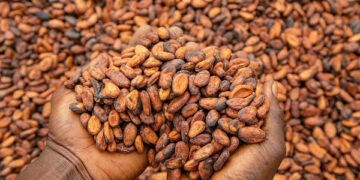The music world mourns the passing of Charles Kwadwo Fosu, beloved as Daddy Lumba, whose death marked the end of an era for Ghanaians and music lovers globally.
The outpouring of grief was immediate and profound, with social media flooded by tributes, nostalgic clips of his timeless hits, and personal anecdotes reflecting his cultural impact. Both President John Dramani Mahama and former President Nana Addo Dankwa Akufo-Addo shared heartfelt condolences, underscoring that Daddy Lumba was more than just a musician; he was a cultural icon.
A Legacy of Immortality
In the realm of Ghanaian music, Lumba now stands alongside legends like Nana Ampadu, A.B. Crentsil, and Paapa Yankson. His unique ability to reinvent highlife music over nearly four decades has left an indelible mark, blending tradition with innovation and intimacy with flair. While others laid the groundwork, Daddy Lumba became the face of the sub-genre known as “Burger Highlife.”
A New Sound Emerges
Since his debut in 1989 with “Yɛɛyɛ Aka Akwantuo Mu,” a collaboration with Nana Acheampong, Lumba’s music brought a fresh, contemporary voice to highlife. His sound, characterized by silky harmonies and modern instrumentation, captivated audiences while remaining distinctly Ghanaian.
The Impact of Aben Wo Ha
Lumba’s talent lay in evolving with the times while staying true to highlife’s emotional core. In the 1990s, he defined the decade with hits like “Biribi Gyegye Wo” and “Sika Asem,” but it was “Aben Wo Ha” that solidified his legendary status. Initially quiet upon release, its infectious rhythm and provocative lyrics turned it into a street anthem. Despite facing censorship, the song became a symbol of rebellion and was ultimately celebrated, winning the Most Popular Song of the Year at the 2000 Ghana Music Awards.
A Cultural Phenomenon
Few Ghanaian musicians have achieved the enduring commercial and artistic success that Lumba enjoyed. He produced and released most of his work independently, setting a standard for aspiring artists in a challenging industry.
ICYMI: Shane Walsh feels he’s finally found his flow after battling injuries.
Comparing Giants
While Lumba and Nana Ampadu represent different eras of highlife, Lumba’s pop appeal brought the genre into mainstream culture, reaching diverse audiences. Alongside Kojo Antwi, Lumba helped redefine what it meant to be a modern Ghanaian musician, blending highlife with pop aesthetics.
A Lasting Legacy
Now, with Daddy Lumba’s passing, his extensive catalogue becomes a vital part of Ghana’s cultural history. His songs will continue to resonate at weddings, funerals, and celebrations, serving as a testament to Ghanaian society over four decades.
His influence on future musicians is profound, evident in the styles of contemporary artists like Kofi Kinaata and Kuami Eugene. Even as musical trends shift, Lumba’s impact remains.
Honoring His Memory
As discussions of a state funeral and memorials arise, the true tribute will be keeping his music alive—through playlists, education, and performances. Daddy Lumba taught us to feel and reflect through his art.
Despite battling health issues in recent years, he remained a beloved figure. This time, however, the news is true—the lion has finally rested.
In a cosmic reunion, he may now be collaborating with Bodo Staiger, the German producer who guided his early career, crafting one final heavenly record.
Daddy Lumba hasn’t simply passed away; he has become a legend. And in Ghanaian music, legends never fade away.
SOURCE: CITINEWSROOM


























